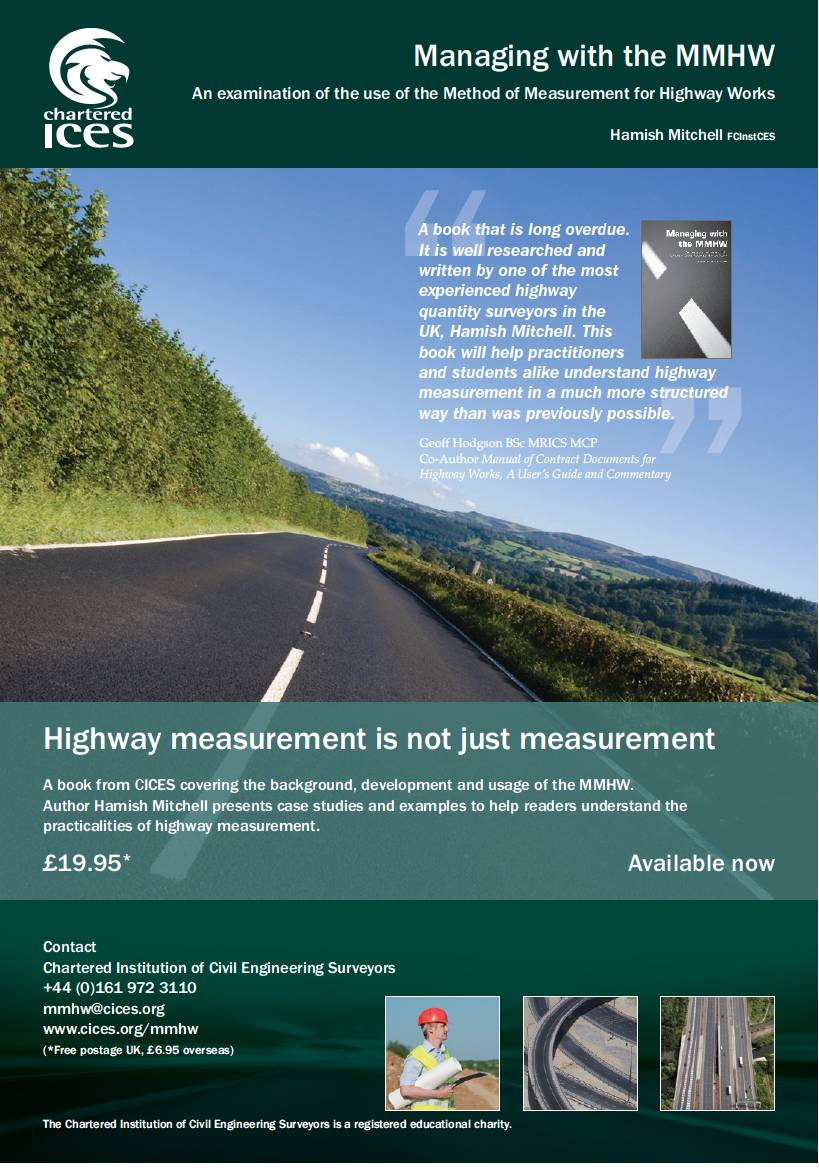Legal Q&A: Good faith
Frances Garratt, Senior Associate, CMS Cameron McKenna Nabarro Olswang

THE standard New Engineering Contract (NEC) provision requiring contracting parties to act in a spirit of mutual trust and cooperation (clause 10.1) has been considered for the first time in a recent Scottish appeal decision. This will be of interest to those of you who work with the NEC form of contract. However, even if the contract you are working under is not an NEC form, it may have an equivalent ‘good faith’ provision, designed to encourage the contracting parties to work cooperatively with each other to solve problems on projects. Does this kind of provision have a role to play beyond a statement of aspiration as to how parties will work with each other? The case of Van Oord UK Limited v Dragados UK Limited considers that question.
Background
Dragados was the main contractor on the Aberdeen Harbour Expansion Project. Van Oord was subcontracted to carry out dredging works. The contract between the parties was an NEC3 Engineering and Construction Subcontract (April 2013 edition) with bespoke amendments, with main option B (priced contract with bill of quantities).
The subcontract provided that a change to the subcontract works information was a compensation event under clause 60.1(1). A compensation event under NEC is assessed as the effect on the defined costs of carrying out the works and the resulting fee. The rationale for that approach is to make sure that neither party is better or worse off as a result of a compensation event. Main option B provides at clause 63.10 that if the effect of a ‘change to the subcontract works information’ is to reduce the total defined cost, the prices can be reduced. The change in prices is then reflected in the bill of quantities in the form of a changed rate, a changed quantity or a changed lump sum.
Dragados changed the subcontract works information by omitting works from the subcontract and transferring those works to another party. It awarded Van Oord a compensation event. On assessing the compensation event, it calculated that the defined costs of the works were reduced as a result of the omission. It reflected that reduction in its assessment by reducing the bill rates for the remaining items of work. The omitted work was said by Dragados to have been under-priced by Van Oord by comparison to the rates quoted in the shorter schedule of cost components (used to assess defined cost), meaning the reduction in defined cost exceeded the value of the relevant work in the bill of quantities.
The court’s decision at first instance and on appeal
Van Oord challenged the reduction in the prices in the Scottish Court of Session, claiming that the omission of works was in breach of contract, and so Dragados should not be permitted to reduce the prices in the event of any reduction in defined cost.
The rationale for that approach is to make sure that neither party is better or worse off as a result of a compensation event.Dragados argued that this would allow Van Oord a windfall, since the defined costs of the works had been reduced and the compensation event provisions were intended to ensure a neutral result. The court found in favour of Dragados. It agreed that, even if there had been a breach of contract, the instruction to omit works had still changed the subcontract works information as Van Oord would no longer carry out the omitted works.
The court therefore agreed that the compensation event provisions should be applied as normal and that the prices should be reduced under clause 63.10.
Van Oord appealed. The appeal court reversed the decision and held that if Dragados had acted in breach (which is still to be determined by the court), a breach of contract could not give rise to a reduction in prices, even if the effect of the compensation event was to reduce the total defined cost.
Mutual trust and cooperation
The appeal court found that a party’s entitlement to seek a reduction of the prices under clause 63.10 depended on whether it had acted in a spirit of mutual trust and cooperation, in accordance with clause 10.1 of the subcontract. In the court’s view, clause 10.1 was not “merely an avowal of aspiration” but “reflects and reinforces the general principle of good faith in contract.” The court considered that clauses 10.1 and 63.10 were ‘counterparts’ of each other, such that the rights under clause 63.10 were to be dependent on compliance with clause 10.1.
It is unlikely that this decision will be the last word on the obligation of mutual trust and cooperation under NEC, or ‘good faith’ clauses more generally.But is there a general principle requiring parties to act in good faith in construction contracts? The courts in Scotland have previously rejected the suggestion that there is any general rule that a contract requires to be fair, as parties enter into contracts for their respective benefit.
Good faith, like commercial common sense, is a moveable feast – to what extent, if at all, does good faith require a party to act against its own commercial interests? Such questions remain unresolved.
The court’s comments could potentially be applied very widely. Its approach may lead parties to argue that other clauses are also ‘counterparts’ to clause 10.1 and subject to a party showing that it has acted in accordance with the obligation of mutual trust and cooperation.
The courts in England have cautioned against an approach where ‘good faith’ clauses, which are general and open-ended, are permitted to cut across specific contractual provisions – for example, payment or extension of time provisions.
Conclusion
It is unlikely that this decision will be the last word on the obligation of mutual trust and cooperation under NEC, or good faith clauses more generally, as the differing approaches the courts have taken is likely to lead to further consideration of this issue in future. However, in the meantime, the decision suggests that clause 10.1 may have a more active role to play than that of a mission statement for how parties will interact with each other.
Frances Garratt, Senior Associate, Cameron McKenna Nabarro Olswang
frances.garratt@cms-cmno.com www.cms.law @cms_law
